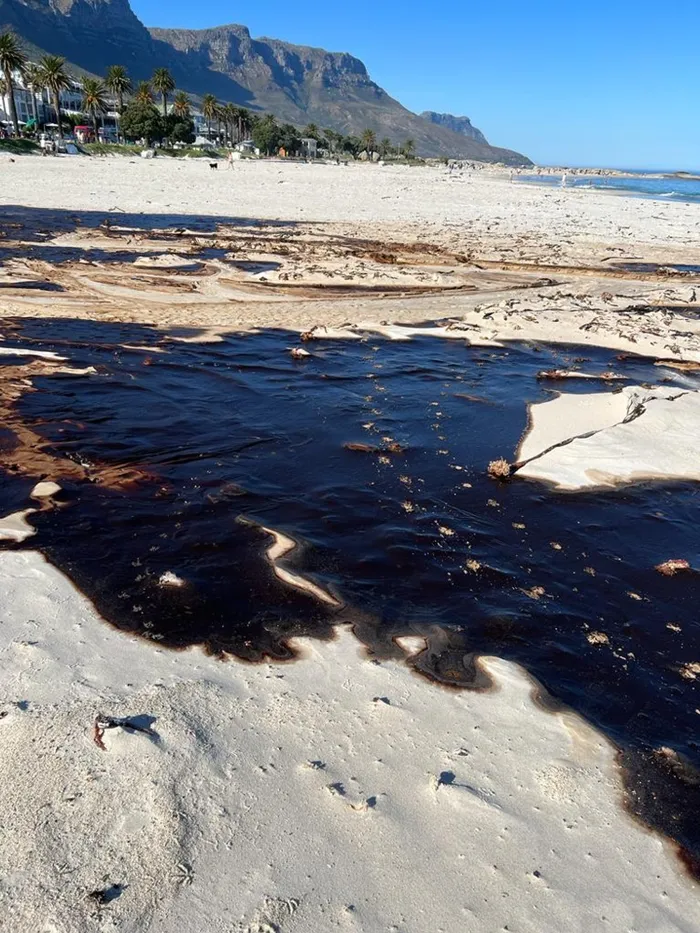Sediment overflow on Blue Flag beach ‘embarrassing’

This is the stuff that oozed from the overflow pipes on Camps Bay Beach last Thursday.
Last Thursday, a thick dark liquid oozed from the overflow pipes at Camps Bay shoreline, seeping over the sand and into the water.

Beachgoers, however, continued to enjoy the afternoon sun because there was no odour coming from what some on social media described as muck, sludge, and a concerning sight on this world-famous beach.
In response to an enquiry by the Atlantic Sun, the City's interim mayoral committee member for water and sanitation, Siseko Mbandezi, said there were no warning signs placed on the beach because the substance that pooled on the sand is not hazardous.
“The substance identified on Camps Bay Beach yesterday (last Thursday) is not hazardous. This substance is coagulated sediment derived from the tannin-rich water located in the reservoirs on top of Table Mountain National Park,” said Mr Mbandezi.
“The dark colour is a result of the flocculated sediment derived from the tannin-rich water, that by design, collects in the settling tanks located at the water treatment works,” he said.
Mr Mbandezi says residents should not be worried because the sediment is natural in dams on Table Mountain and the overflow was caused by a blockage.
“This blockage has since been located and a team is currently on site unblocking the line.
“Various departments have been involved in responding to this incident. The City has also engaged with various members of the public informing them of the cause of the discharge of the natural sediment,” he said.
Just a week before this overflow, concerned Camps Bay residents were invited to a meeting (Sewage matters under spotlight, March 16, 2023) for discussion about the effects of sewage spills on the Atlantic seaboard.
The gathering at Camps Bay High was organised by Freedom Front Plus PR councillor Paul Jacobson, who believes the recent overflow on the beach could be harmful.
“We want to know if that black sludge, whether it’s oil or overflow, is harmful to the environment or to the bathers who were there. Aesthetically it's just a disaster for a world-renowned tourist destination. Seeing this black stuff flowing on a pristine beach is an embarrassment and it challenges the authenticity of our Blue Flag status.
“There has to be action on why this has happened? I know that this has happened at Glen Beach before and it seems the authorities don’t see this as a hazard,” Mr Jacobson said.
Mark Jackson, a film-maker who in 2016 produced the short documentary Bay of Sewage, says he took a sample of the black matter to have it tested.
“I don’t know what it is but we are going to have it tested, I’m paying for this (lab testing) myself as it is a concern and we need answers. Is it harmful to the environment and people? We don’t know yet,” Mr Jackson said.